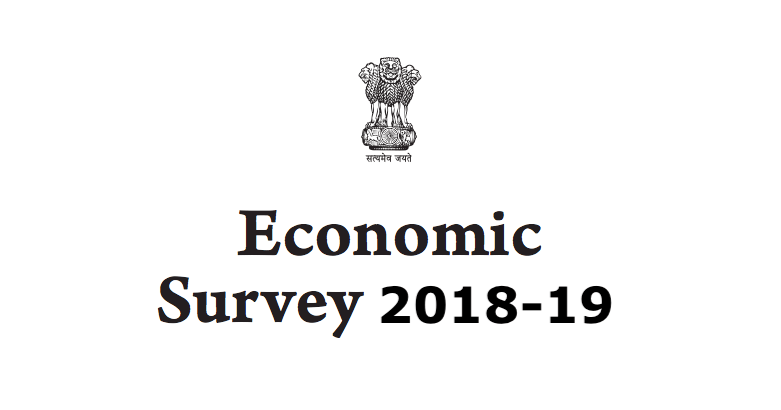The Citizenship (Amendment) Bill 2019 or CAB 2019 is a bill that seeks to give Indian nationality to certain category of refugees (based on religion) from Pakistan, Bangladesh and Afghanistan in India before December 31, 2014. The bill has been passed both by Lok Sabha & Rajya Sabha and now will be sent to President for his ascent.
The Citizenship Act, 1955 provides various ways in which citizenship may be acquired. It provides for citizenship by birth, descent, registration, naturalisation and by incorporation of territory into India. In addition, it regulates the registration of Overseas Citizen of India Cardholders (OCIs), and their rights. An OCI is entitled to some benefits such as a multiple-entry, multi-purpose lifelong visa to visit India. The Act prohibits illegal migrants from acquiring Indian citizenship illegal migrants are prohibited from acquiring Indian citizenship.
Who is an illegal migrant ?
An illegal migrant is a foreigner who:
- (i) enters the country without valid travel documents, like a passport and visa, or
- (ii) enters with valid documents, but stays beyond the permitted time period.
Important Clauses in CAB 2019
- The Bill amends the Act to provide that that the Hindus, Sikhs, Buddhists, Jains, Parsis and Christians from Afghanistan, Bangladesh and Pakistan, who entered India on or before December 31, 2014, will not be treated as illegal migrants. In order to get this benefit, they must have also been exempted from the Foreigners Act, 1946 and the Passport (Entry into India) Act, 1920 by the central government. The 1920 Act mandates foreigners to carry passport, while the1946 Act regulates the entry and departure of foreigners in India.
- Citizenship by registration or naturalisation: The Act allows a person to apply for citizenship by registration or naturalisation, if the person meets certain qualifications. For instance, if a person resides in India for a year and if one of his parents is a former Indian citizen, he may apply for citizenship by registration.
- To obtain citizenship by naturalisation, one of the qualifications is that the person must have resided in India or have been in service of the central government for at least 11 years before applying for citizenship.
- The Bill creates an exception for Hindus, Sikhs, Buddhists, Jains, Parsis and Christians from Afghanistan, Bangladesh and Pakistan, with regard to this qualification. For these groups of persons, the 11 years’ requirement will be reduced to five years.
- On acquiring citizenship:
- (i) such persons will be deemed to be citizens of India from the date of their entry into India, and
- (ii) all legal proceedings against them in respect of their illegal migration or citizenship will be closed.
- These provisions on citizenship for illegal migrants will not apply to the tribal areas of Assam, Meghalaya, Mizoram, and Tripura, included in the Sixth Schedule to the Constitution. These tribal areas include Karbi Anglong (in Assam), Garo Hills (in Meghalaya), Chakma District (in Mizoram), and Tripura Tribal Areas District. Further, it will not apply to the “Inner Line” areas notified under the Bengal Eastern Frontier Regulation, 1873. In these areas, visits by Indians are regulated through the Inner Line Permit. Currently, this permit system is applicable to Arunachal Pradesh, Mizoram, and Nagaland.
- Cancellation of registration of OCIs: The Act provides that the central government may cancel registration of OCIs on certain grounds. These include:
- (i) if the OCI has registered through fraud, or
- (ii) if within five years of registration, the OCI has been sentenced to imprisonment for two years or more, or
- (iii) if it becomes necessary in the interest of sovereignty and security of India.
- The Bill adds one more ground for cancelling registration, that is, if the OCI has violated the provisions of the Act or of any other law as notified by the central government. The orders for cancellation of OCI should not be passed till the OCI cardholder is given an opportunity to be heard.
Criticism of CAB 2019:
- Among the main opposition against the Bill is that it is said to be violative of Article 14 of the Constitution — the Right to Equality, claiming that citizenship can’t be given on the basis of religion.
- Leading opposition parties say the bill is discriminatory as it singles out Muslims who constitute nearly 15 percent of country’s population. The government clarified that Pakistan, Afghanistan and Bangaldesh are Islamic republics where Muslims are in majority hence they cannot be treated as persecuted minorities. It also assures that the government will examine the application from any other community on case to case basis.
How many will it add to India’s population?
There are no official figures other than records furnished by the Intelligence Bureau before the JPC saying there are 31,313 persons belonging to these minority community living in India on Long Term Visa. They had sought refuge here on grounds of religious persecution.
References:
- CAB 2019 Features – PRS Legislature
- The Citizenship (Amendment) Bill 2019 or CAB 2019 – Download PDF
- ET NEWS





